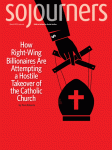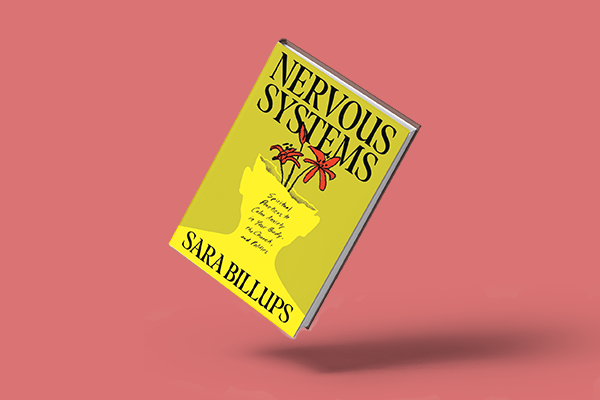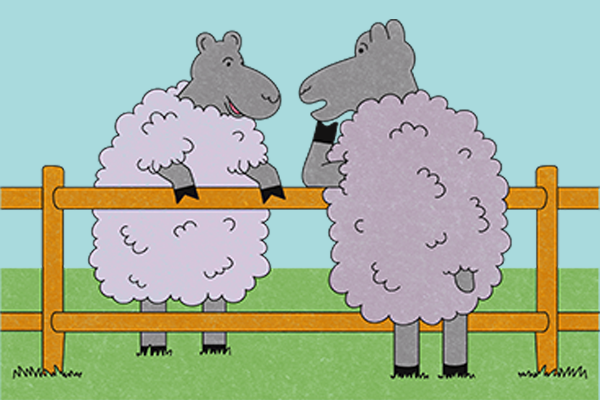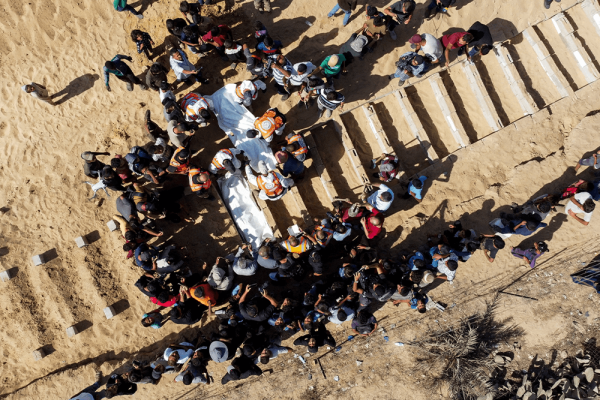Beware of pastoral letters sent by prophets. They can pack a punch. Says this one, what do you want first? The good news or bad? And from where you sit, can you tell the difference?
But time and place are crucial to interpretation. This one, from the prophet Jeremiah, was penned in the reign of King Zedekiah, between the first Babylonian invasion of Jerusalem in 597 B.C.E. and the final destruction of Jerusalem and temple in 587, with a second deportation. It is a letter sent to the exiles by way of the king’s official couriers. The location of the letter is betwixt and between. Written in Jerusalem, read in Babylon. For that matter, kind of like our situation.
So, from where do we read? Equally crucial to know. William Stringfellow, in his An Ethic for Christians and Other Aliens in a Strange Land, put it like this:
[A] nation, or any other principality, may be such a dehumanizing influence with respect to human life in society, may be of such anti-human purpose and policy, may pursue such a course which so demeans human life and so profits death that it must be said, analytically as well as metaphorically, that that nation or other principality is in truth governed by the power of death.
The spectacular example, in the earlier part of the 20th century, of a nation and society and its majority classes and its leaders existing in precisely this condition is, of course, Nazi Germany.
The biblical story of such a realm is the saga of Babylon.
The extraordinary instance in the present time of the same situation is the United States of America.
For the first century Christian movement, the Babylon parables of John’s Revelation provided a code and clue for understanding themselves in a “foreign location,” an eschatological exile at the very least. Earlier, under the seductions and brutality of the Greek empire, Jews took heart and nonviolent tactics from the Babylon narrative and visions in the book of Daniel. With the memory of the Middle Passage in mind, Jamaicans used “Babylon” to name their exile (think: Rastafarians and Bob Marley).
A few years ago, when emergency management was imposed in Detroit, when all the powers of government and more were invested in one person replacing elected officials, the city council simply rolled over to it. But the elected Detroit public school board continued to fight—in court, at the schools, in the street, at meetings—continuing to represent parents and students. They called themselves the School Board in Exile.
The politics of dislocation
Though he is practically a perfect stand-in, we don’t need Trump cast as Nebuchadnezzar (he’d play an even better Nero) to understand ourselves as strangers in this foreign land of U.S. empire. We either know dislocation in our guts or we are mindless imperial agents. The New Testament summons us to be in this world system, but not of it.
As to dislocation, I commend a book called Root Shock, by social psychiatrist Mindy Fullilove, who teaches urban policy and health at The New School in New York. The title concerns what happens to individuals and communities when they are abruptly and forcibly pulled up by the roots and a community’s cultural and emotional ecosystem is destroyed. Shock can happen to plants, to persons, and to entire communities.
Fullilove follows the history of urban renewal (then called by some “negro removal”) which, in the midst of the freedom struggle, structurally assaulted the rooted places from which the African-American community drew its life. She describes an archipelago of urban ghettos where music, culture, and meaning thrived, all of which was destroyed, first with contagious housing decline and then with the blunt end of the bulldozer, expelling people into trauma and exile. Detroit’s Black Bottom neighborhood is one depicted. The politics of dislocation. Think of the Babylonian exiles as living under the trauma of root shock.
The literary setting of the letter to the exiles is important. The book of Jeremiah had a complex literary history, with layers of editors. Jeremiah himself had a scribe who tracked his public utterances but also narrated events. The letter is situated at the conclusion of several chapters of such narration, in particular certain events of public conflict and prophetic suppression. And it appears just before the so-called “book of comfort,” which pivots from a pounding judgment of pending destruction to the love and mercy of God, the promise of covenantal renewal, remnant, and return. It may be cold comfort, but this letter teases the way into what’s next.
The “sign prophet”
The narrative of Baruch, Jeremiah’s able scribe, variously provides glimpses of opposition but also the cost paid by the prophet: He’s chained in stocks, arrested, tried for capital offense, and imprisoned in a filthy cistern.
The chapter immediately before the letter tells of a public argument with Hananiah, the temple prophet, who puts forward his own prophesy, “thus says the Lord,” that this deportation will be over quick. Jeremiah responds, Amen, may it be as you say, but I don’t think so. To make his own point, he enters the debate wearing a yoke.
Thanks to our narrator, we know that Jeremiah was a “sign prophet,” doing actions to illustrate and embody his words. So he smashes pots in the public square to warn of coming destruction, buys real estate as hope when the crashing market says there’s no future in which to invest, and buries clothes in the ground to show what they are like when dug up later.
Hananiah responds that two can play this sign game, and he promptly grabs the yoke and breaks it in the name of the Lord. Hmmm. Jeremiah seems to back off, but he actually escalates, returning now with an iron yoke.
All of this is to say that though the letter is a letter, it is also itself an action, a sign; it is both word and deed. Slipped into the bag of the king’s courier, it is a very public letter and so a very public witness.
If exile is “root shock,” this pastoral letter from a prophet urges re-rooting. Embrace the “strange land” as long-haul location? Seek the welfare of the city, which has taken us captive? Little wonder it’s also contested on Babylonian soil. Hananiah has a counterpart and alter ego there. Shemaiah prophesies against Jeremiah on the spot and writes his own letter back to Jerusalem: Are there no stocks for such as him?
Our narrator makes the conflict a test case for “false prophecy.” Taking the Lord’s name in vain, as it were, pretending the authority of God’s voice, is a capital offense, a charge that Jeremiah himself would face, as perhaps did Jesus. The test for false prophecy was, on the one hand, the heart of the hearer and the Torah of the Lord (Deuteronomy 13:1-5), but also the verities of history (Deuteronomy 18:19-22): Is this word born out?
Before the chapter is over, Hananiah is dead, and Jeremiah says the same will fall upon Shemaiah (29:32). The whole thing gives great pause, underscoring the discernable ambiguity and vulnerability of speaking in the flux of the moment. It’s fair warning to the prophets of court and temple, but to street prophets as well. Martin Luther King Jr. called it “a vocation of agony.” If only all pastors took such seriousness in speaking the Word.
The things that make for shalom
Seek the welfare of the city to which I have sent you. So says Jeremiah. That is a tepid translation of what is beneath the text. “Seek the peace” is equally insufficient. There is no English equivalent for shalom. It is peace rooted in justice. Wholeness. Right relation with God, neighbor, community, creation—all that and more. It’s both beating swords into plowshares and sitting sufficient and sustainable beneath one’s vine and fig tree. Sabbath and Jubilee economics are practically programmatic of shalom.
Think of Jesus walking the movement into Jerusalem. The city’s name means “foundation of peace” (you can hear it in salem/shalom). He says they don’t know the things that make for peace. There again translation fails us. The gospels write the Greek eirene/peace, but Jesus would have said shalom. The “foundation of shalom” has forgotten “the things that make for shalom.”
So, after a forced march into town, seek the shalom of Babylon? The city where we hung up our lyres and the songs of Zion stuck in our throats? Pray for the city that epitomizes the domination system and practices the myth of redemptive violence? Shalom is the complete opposite of the imperial way. Wait. What? Is this the love of enemies or something?
Shalom in Babylon is certainly a countersign, a form of subversion if not the seed of transformation. Jeremiah details a multidimensional shape to putting down roots in the near term. It’s simple and suggestive: build, plant, marry. The built environment of shalom is physical, social, spiritual. It’s certainly not palaces and mansions but homes modest and centered, equal and sufficient, an urban landscape configured for justice. To “plant” summons images of integral urban gardens around which rooted communities may be nourished, but also a renewed connection to earth, honored and tended. Empire extracts and imports grain; exiles grow it beneath their feet. And “marry” means thinking not only about relationship and kin, but generations back and forward.
All this may have been for them hard to imagine—but we had better. We find ourselves exiles in a strange land. We’ve been sent a letter by biblical courier. This way lies a future with hope. Consider it and live.
This Bible study was prepared for Sojourners' 2018 Summit.

Got something to say about what you're reading? We value your feedback!







